Sentence construction Grammar Worksheets for 6-Year-Olds
5 filtered results
-
From - To
Our Sentence Construction Grammar Worksheets for 6-Year-Olds are designed to make learning fun and engaging. These worksheets help young learners understand the basics of grammar, sentence structure, and punctuation through interactive exercises. Each activity encourages creative sentence formation, building foundational literacy skills that will support future writing endeavors. With colorful illustrations and age-appropriate content, kids will strengthen their understanding of subject-verb agreement, proper use of articles, and much more. Perfect for both classroom use and at-home practice, these worksheets pave the way for confident and skilled young writers. Explore our collection today and watch your child’s grammar skills flourish!
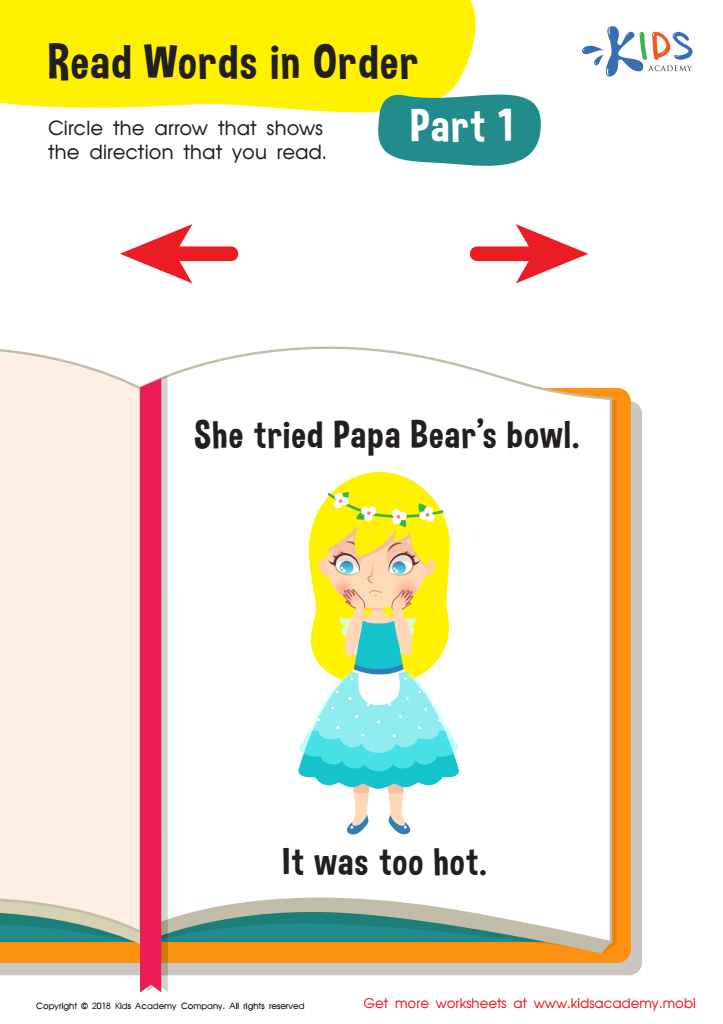

Read Words Order Part 1 Worksheet
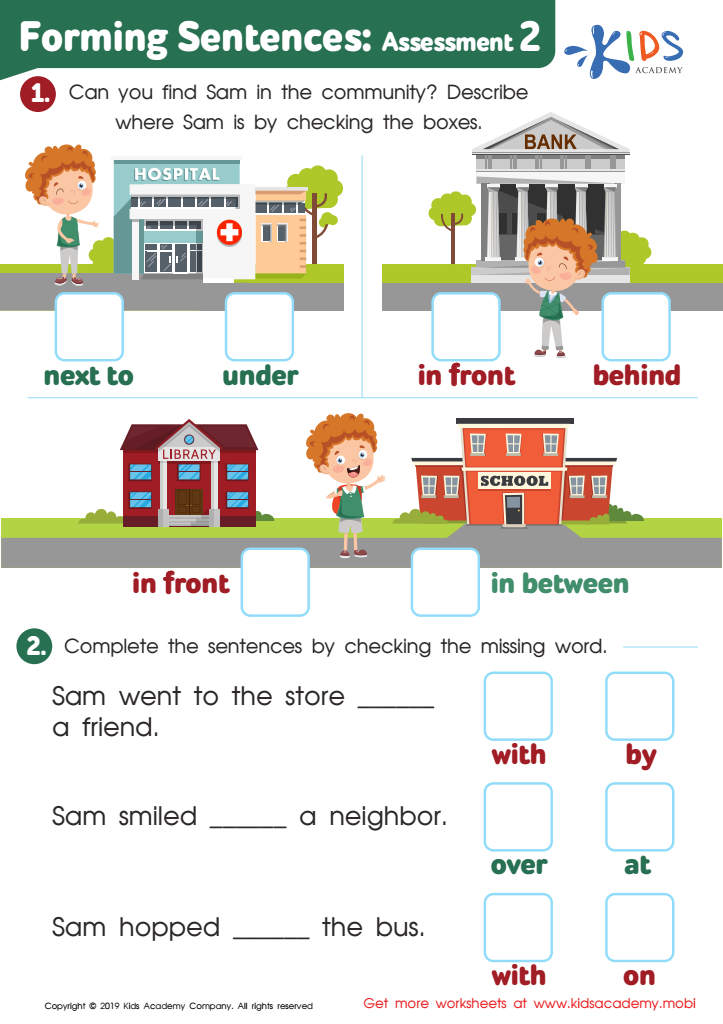

Forming Sentences: Assessment 2 Worksheet
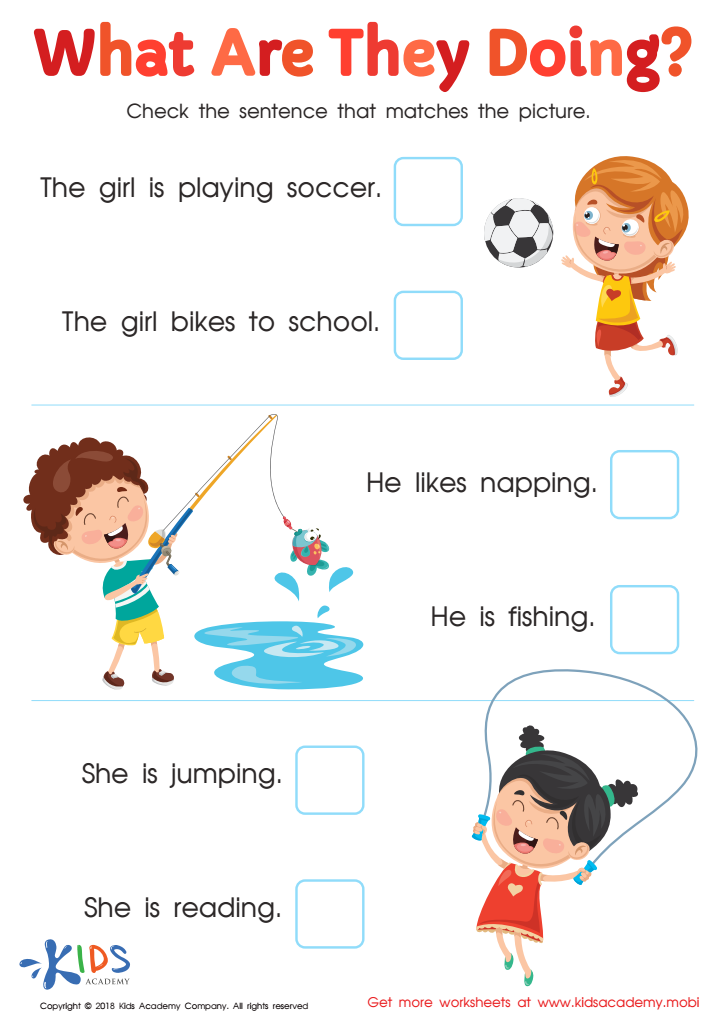

What Are They Doing? Worksheet
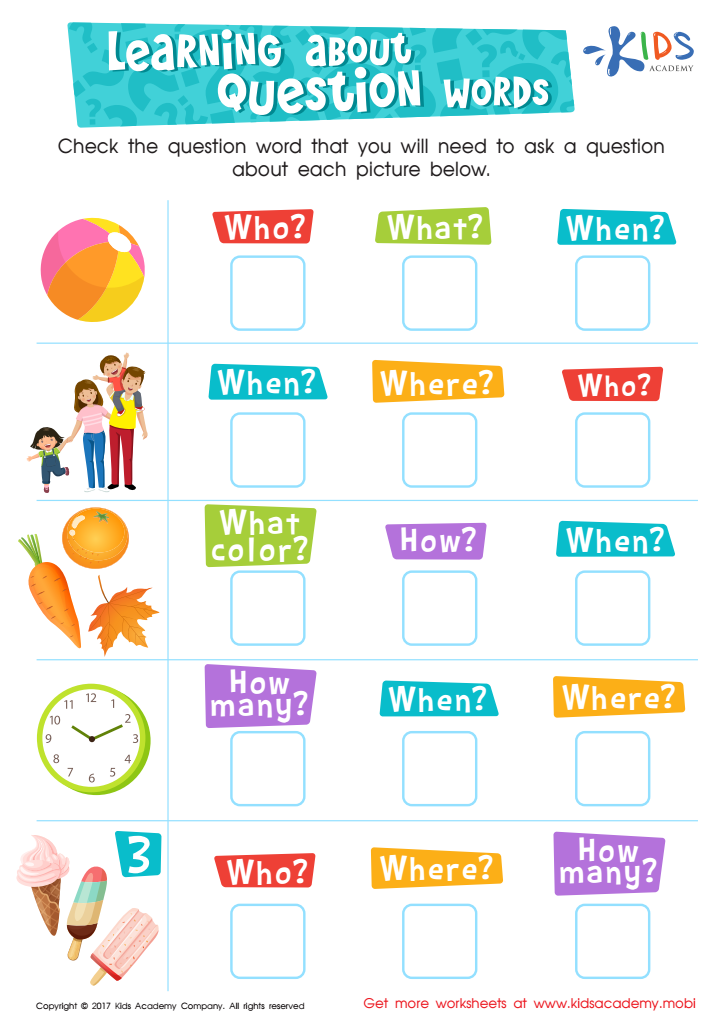

Learning about Question Words Worksheet
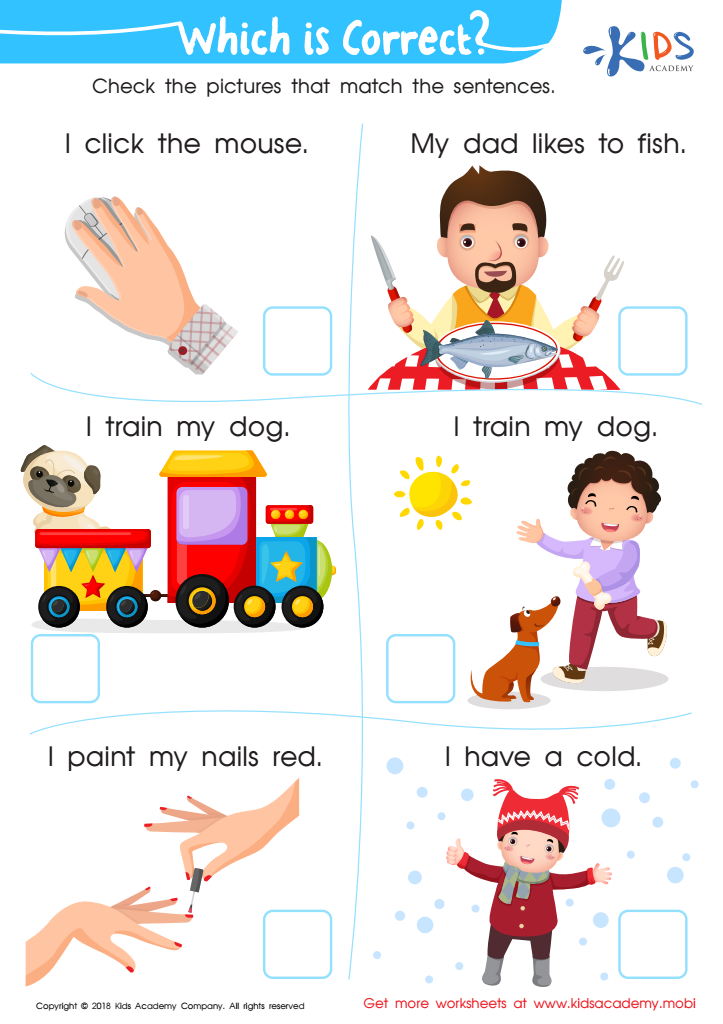

Which Is Correct? Worksheet
Parents and teachers should prioritize sentence construction and grammar for 6-year-olds because this foundational stage lays the groundwork for effective communication and academic success. At this age, children are rapidly developing their language skills, and understanding basic grammar helps them express their thoughts clearly and accurately. Proficiency in sentence construction enables children to articulate their needs, tell stories, and share ideas with confidence.
Furthermore, good grammar skills are directly linked to better reading comprehension. When children understand how sentences are structured, they can more easily decode and make sense of the text, fostering a love of reading and learning. Quality instruction in grammar also supports cognitive development, as it encourages logical thinking and attention to detail.
Additionally, early exposure to proper grammar helps prevent future learning difficulties. It provides a strong linguistic foundation, reducing the likelihood of struggles with more advanced language skills in later grades. Socially, children with good grammar skills can interact more effectively with their peers, facilitating smoother social interactions and collaborations.
Ultimately, investing in sentence construction and grammar education at a young age equips children with essential tools for both their immediate educational endeavors and their long-term personal and professional lives.
 Assign to My Students
Assign to My Students





.jpg)









